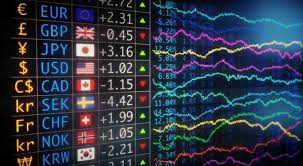Pin Up Casino – Azrbaycanda onlayn kazino Pin-Up.3754
October 29, 2025A Comprehensive Overview of Online Dating: An In-Depth Guide
October 29, 2025
Forex currency trading, or foreign exchange trading, is the process of exchanging one currency for another in a global market. With a daily trading volume exceeding $6 trillion, it is the largest financial market in the world. This article delves into the intricacies of forex trading, including its mechanisms, strategies, and key players. Additionally, if you’re trading in South Africa, consider checking out forex currency trading Forex Brokers in South Africa to find reliable trading platforms.
Understanding Forex Trading
Forex trading involves the buying and selling of currency pairs, where one currency is exchanged for another. The exchange rate between the currencies fluctuates based on various factors, including economic indicators, political stability, and market sentiment. Traders speculate on these fluctuations, aiming to make profits.
How Forex Trading Works
Forex trading operates on a decentralized market, meaning there is no central exchange. Trades are executed over-the-counter through electronic platforms. The forex market is open 24 hours a day from Monday to Friday, allowing traders to take advantage of movements across different time zones.
Currency Pairs
Currencies are traded in pairs, with the first one being the base currency and the second the quote currency. For example, in the pair EUR/USD, the Euro is the base currency and the USD is the quote currency. The exchange rate indicates how much of the quote currency is needed to purchase one unit of the base currency.
Major Currency Pairs
The most traded currency pairs include major currencies such as the US Dollar (USD), Euro (EUR), Japanese Yen (JPY), and British Pound (GBP). These pairs are characterized by high liquidity and lower spreads, making them popular among traders.
Factors Influencing Forex Prices
Forex prices are influenced by a myriad of factors, including:
- Economic Indicators: Reports such as GDP growth, unemployment rates, and inflation data significantly affect currency values.
- Political Stability: Countries with stable governments and economies are more attractive to investors, which can strengthen their currencies.
- Interest Rates: Central bank decisions on interest rates can lead to currency appreciation or depreciation.
- Market Sentiment: Traders’ perceptions and reactions to news events can cause immediate fluctuations in currency prices.
Forex Trading Strategies
Successful forex trading requires the implementation of effective strategies. Here are some commonly used strategies:
Scalping

Scalping is a short-term trading strategy where traders aim to make small profits from minor price fluctuations. This strategy requires quick decision-making and the ability to execute trades rapidly.
Day Trading
Day trading involves opening and closing positions within the same trading day. Day traders focus on capturing intraday price movements and typically do not hold positions overnight to avoid overnight risk.
Swing Trading
Swing traders hold positions for several days or weeks, aiming to profit from anticipated price swings. This strategy requires more analysis of trends and can be less time-consuming compared to day trading.
The Role of Forex Brokers
Forex brokers are crucial in the trading process as they facilitate transactions between retail traders and the interbank market. Choosing a reputable broker is essential for successful trading. Factors to consider include:
- Regulation: Ensure the broker is regulated by a recognized authority.
- Trading Platform: A user-friendly and stable trading platform enhances the trading experience.
- Spreads and Commissions: Compare the cost of trading, including spreads and commissions.
- Customer Support: Reliable customer service can help resolve issues quickly.
Risk Management in Forex Trading
Forex trading carries significant risks, and it is crucial to implement risk management strategies:
- Use Stop-Loss Orders: Set stop-loss orders to minimize potential losses.
- Diversification: Avoid putting all your capital into one trade; diversify your portfolio.
- Only Trade with Money You Can Afford to Lose: Do not use money needed for essential expenses to trade.
Conclusion
Forex currency trading offers exciting opportunities but comes with considerable risks. A comprehensive understanding of market dynamics, effective trading strategies, and proper risk management techniques are essential for success. Whether you’re an experienced trader or a beginner, taking the time to learn and plan can positively impact your trading journey.
Further Resources
To deepen your knowledge of forex trading, consider exploring online courses, webinars, and demo trading accounts offered by various brokers. Continuous learning and practice will enhance your trading skills and increase your chances of success in the forex market.
